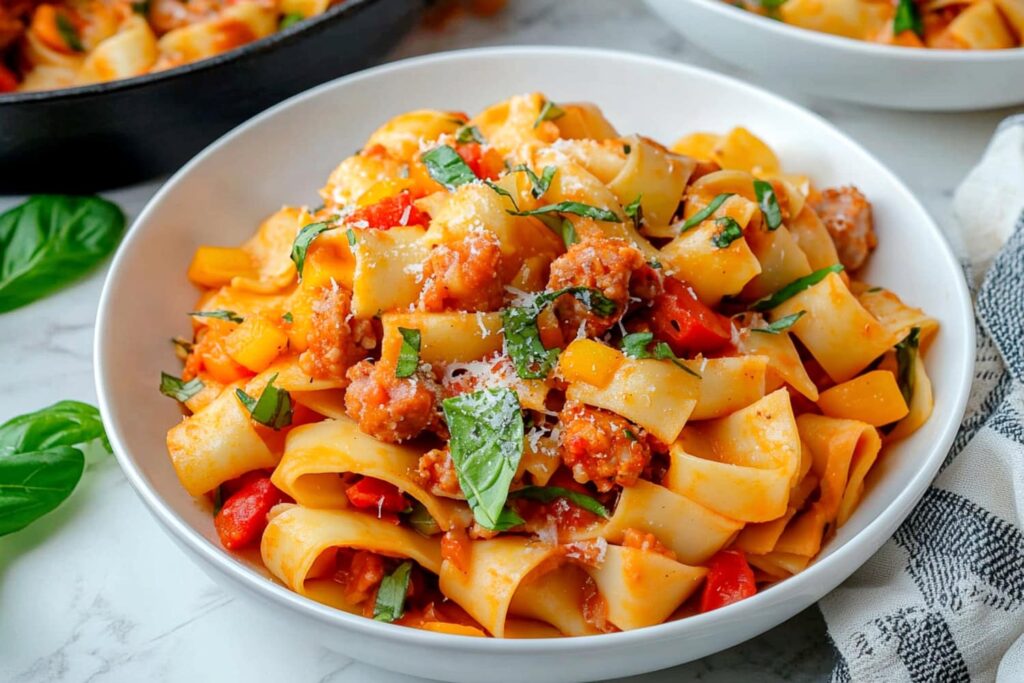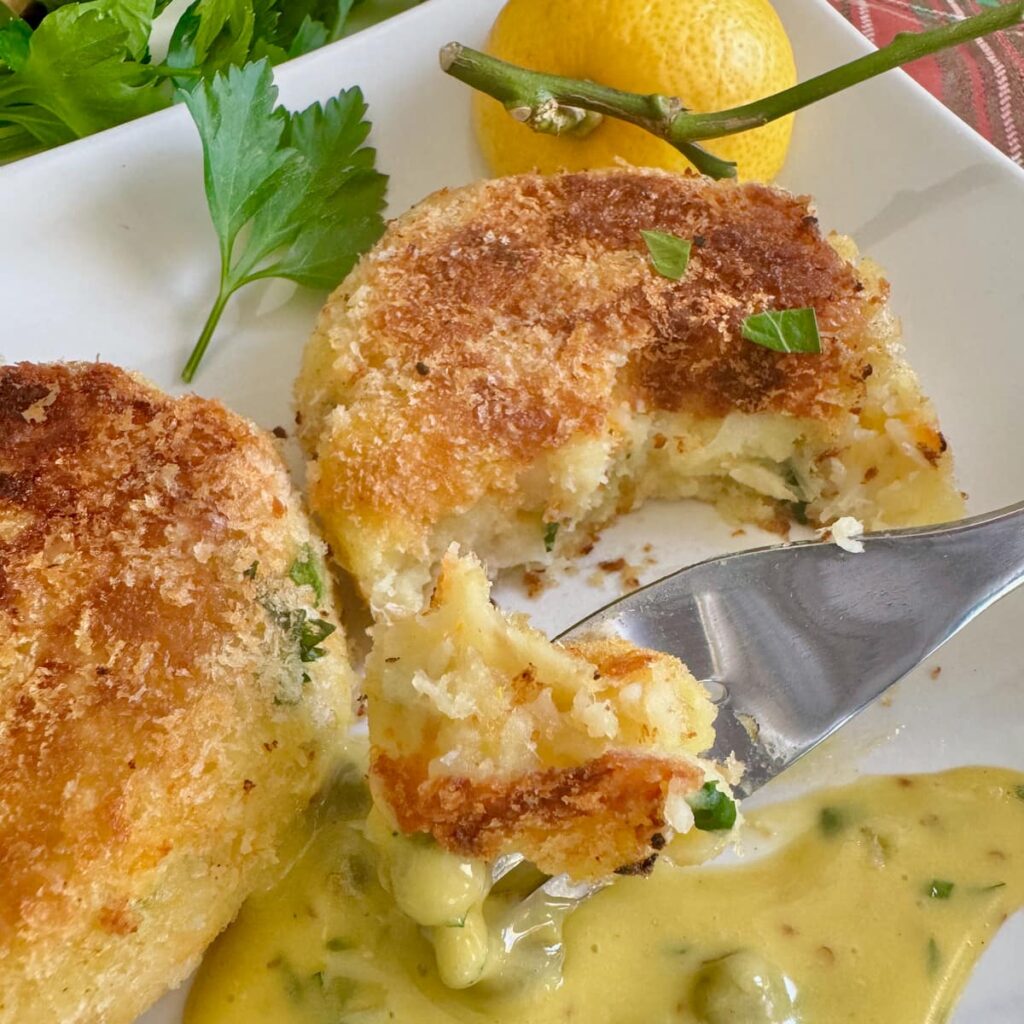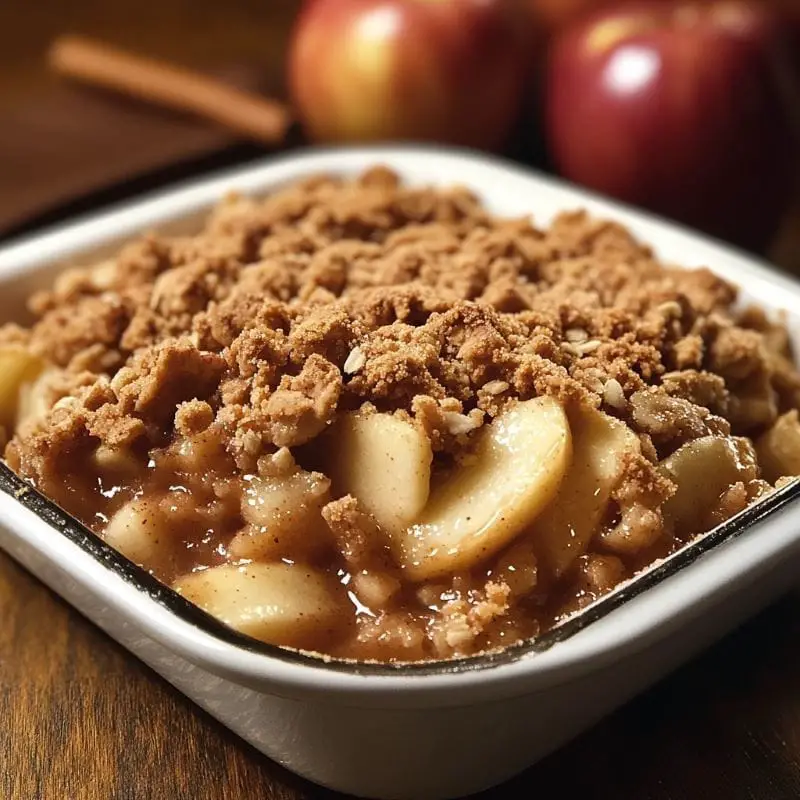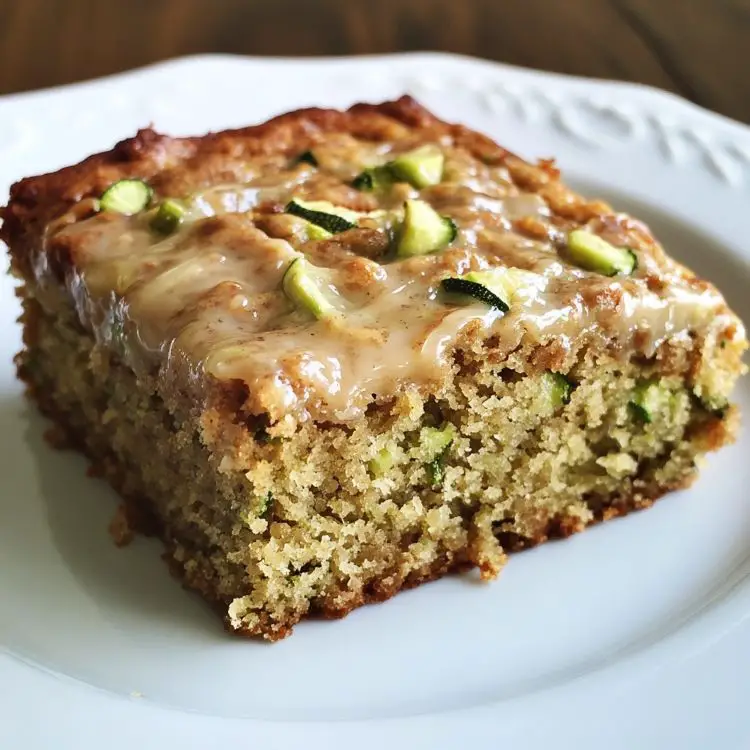Delicious Gujarati Methi Thepla Recipe: A Step-by-Step Guide
Methi na thepla is a traditional Indian flatbread packed with flavor and nutrition, combining fresh fenugreek leaves with whole wheat flour and aromatic spices. This delightful bread is not just perfect for breakfast or a quick snack; it travels beautifully, making it an ideal companion for long road trips or packed lunches. With its unique taste and lengthy shelf life, Gujarati methi thepla is a crowd-pleaser that you’ll want to make again and again.
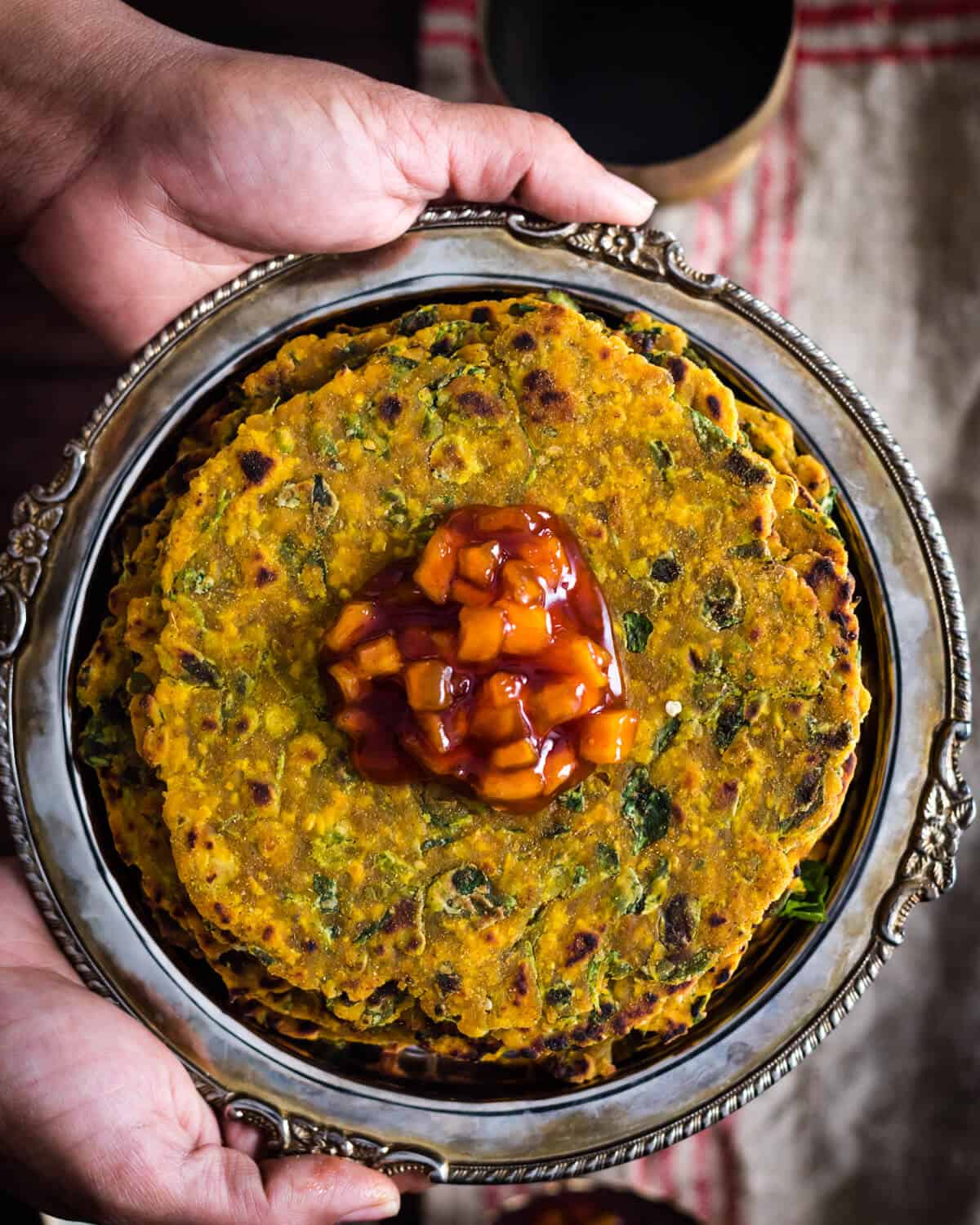
What is Methi Thepla?
Thepla is an unleavened bread made predominantly with wheat flour, often enhanced with finely chopped vegetables or leafy greens. In the case of methi thepla, the star ingredient is fenugreek leaves, giving it a distinct flavor and making it a beloved dish in Gujarati cuisine. While similar to parathas, methi thepla takes on a unique profile due to its radiant aroma and the way the fenugreek transforms the dough into something exceptional.
Are Thepla and Parathas the Same Thing?
There are notable differences between thepla and parathas despite their similarities:
- Flour Composition: Thepla typically uses a mix of flours such as bajra (millet) and besan (chickpea flour), while parathas are usually made with just whole wheat flour.
- Dough Preparation: Parathas are made with plain water, but thepla dough is enriched with yogurt.
- Shelf Life: Theplas last significantly longer than parathas, making them ideal for travel.
- Cooking Technique: Both are cooked on a griddle, but thepla is pressed down intentionally to achieve a crispier texture.
How Does Methi Thepla Taste?
The delectable taste of methi thepla strikes a perfect balance between spicy and savory, mainly attributed to the fenugreek leaves. While methi can be somewhat bitter on its own, when mixed into the thepla, it contributes a wonderful aroma and rich, comforting flavor, reminiscent of dishes where methi is a key ingredient.
How to Make Methi Thepla
Growing up in a multicultural environment where South Indian dishes met Gujarati cuisine, I developed a fondness for theplas long before I made them myself. After years of perfecting a recipe, a friend reminded me of how truly delightful homemade theplas can be. Taking inspiration, I’m excited to share this updated method that yields a batch perfect for family road trips—28-30 delectable theplas in one go!
Ingredient Notes/Swaps
- Whole Wheat Flour (Atta): The base of our thepla dough.
- Bengal Gram Flour (Besan): Imparts a subtle nutty flavor.
- Bajra Millet Flour: Adds texture and nutrition.
- Fresh Methi Leaves: Rinsed and finely chopped.
- Thick Yogurt: Enhances dough softness and balances bitterness.
- Oil: For frying and making a supple dough; neutral oils work best.
- Sesame Seeds: For a nutty taste.
- Cumin Seeds: Provide earthy warmth.
- Carom Seeds (Ajwain): Unique flavor and digestive support.
- Fennel Seeds (Saunf): Adds sweet aroma and flavor.
- Seasonings: A mix of turmeric powder, Kashmiri red chili powder, salt, and a pinch of sugar.
- Garlic Cloves: For an extra kick.
- Green Chilies: Add a spicy burst.
- Water: To form a soft, pliable dough.
Equipment Needed
- Large Mixing Bowl
- Rolling Pin
- Hot Tawa (Griddle) for cooking
Step-by-Step Guide to Making Methi Na Thepla
Step 1: In a large bowl, combine whole wheat flour, yogurt, and oil. Mix well and add the rest of the ingredients except for the methi leaves and water. Stir until you have a consistent mixture.
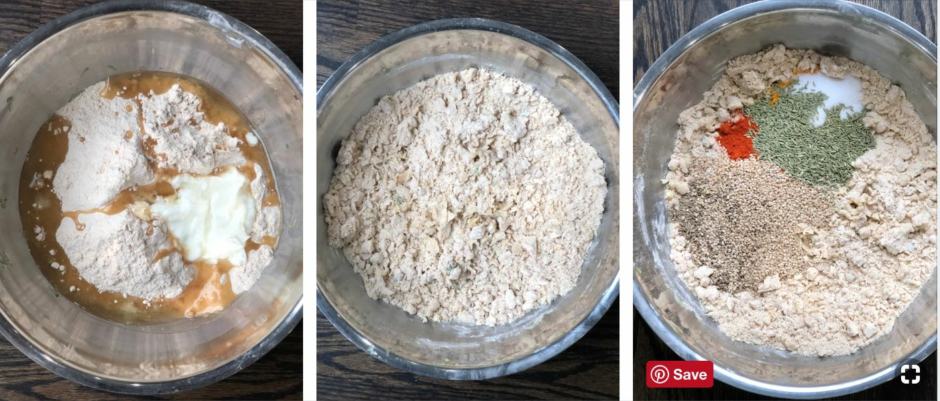
Step 2: Gently fold in the chopped methi leaves and knead the while adjusting water as necessary to form a smooth dough.
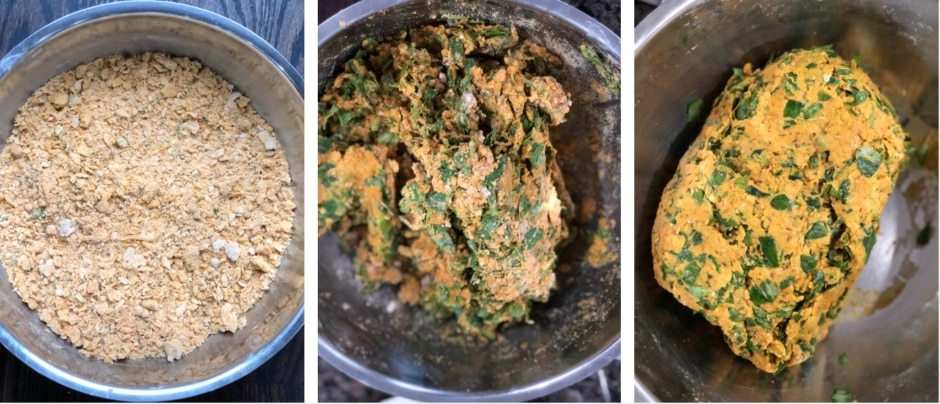
Step 3: Divide the dough into 30 equal portions. Cover with a damp cloth to keep them from drying out. Roll each portion into a circular shape (about 5-6 inches in diameter), dusting with flour as necessary.
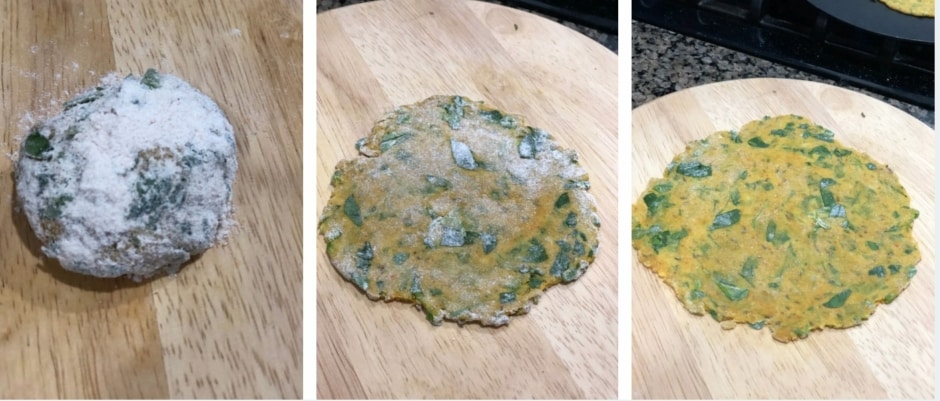
Step 4: Heat a griddle over medium heat. Carefully remove excess flour by transferring the rolled out thepla back and forth between your hands. Place the thepla on the hot griddle. Once bubbles form on one side (after about a minute), flip it. Press it gently with a ladle or cloth to ensure thorough cooking. After flipping, drizzle a teaspoon of oil on the pan and continue cooking for another 15 seconds on each side. Check edges to make sure they are cooked through.
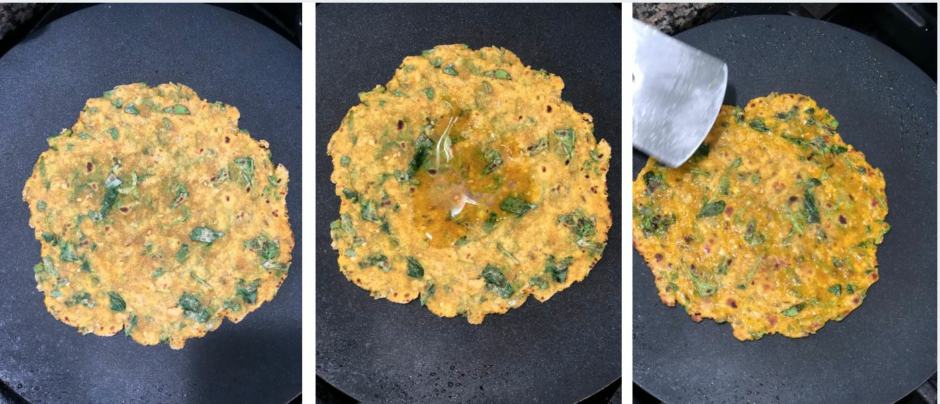
Variations
Here are some creative variations to consider, keeping the preparation method the same:
- Bottle Gourd Thepla: Add 1 cup of grated bottle gourd along with theflour and spices in the mixture.
- Radish Thepla: Incorporate a cup of grated radish for a different flavor profile.
- Spinach Thepla: Substitute the methi leaves with 1-2 cups of chopped spinach.
- Vegan Methi Thepla: Replace yogurt with water or a vegan yogurt alternative for a dairy-free version.
What to Serve with Methi Thepla?
Methi thepla is best enjoyed warm or at room temperature, often paired with chundo (a sweet and tangy mango pickle), green chutney, or plain yogurt. They are also absolutely delightful when served with a cup of masala chai.
How to Prep Ahead
For easy preparation, make the dough ahead of time and store it properly:
- Refrigerated dough stays fresh in an airtight container for up to three days.
- The frozen dough lasts for a whole month, perfect for future use.
- Allow the dough to reach room temperature before rolling out for cooking.
Storage Instructions
Methi thepla can be stored based on whether or not yogurt is used:
- With Yogurt: Store at room temperature in an airtight container for 1-2 days.
- Without Yogurt: Can last for 7-10 days without refrigeration.
- Refrigerator: Lasts 4-5 days when stored in a container.
- Freezer: Lasts 2-3 months; separate with parchment paper to prevent sticking.
How to Make Methi Thepla for Travel?
For longer-lasting thepla suitable for travel, prepare the dough with water instead of yogurt and add an extra two tablespoons of oil. With proper storage, they can last up to 7-10 days without refrigeration, making them perfect for on-the-go meals.
How Do You Make Methi Thepla Soft?
Unlike rotis, theplas aren’t as soft but you can certainly make them softer by kneading the dough with a few tablespoons of oil.
Can We Substitute Methi Leaves with Kasoori Methi?
Kasoori methi (dried fenugreek leaves) are much more potent than fresh leaves. If using kasoori methi, reduce the quantity to one-third of fresh fenugreek leaves.
How Many Calories are in Methi Thepla?
Each thepla made following this recipe contains approximately 137 calories.
Tips on Preserving Methi Leaves
To keep methi leaves fresh for longer periods, follow these steps:
- Rinse and Dry: Start by washing the methi leaves and pat them dry using a clean towel.
- Wrap in Paper Towels: Place the leaves in a single layer on a dry paper towel and wrap them lightly.
- Store in an Airtight Container: Place wrapped methi leaves in a container or zip-lock bag and store them in the refrigerator.
- Freezing: For long-term storage, freeze dried methi leaves in freezer-safe bags. They can last several months.
- Drying (Alternative Method): Spread leaves out to dry in a well-ventilated area, then store them in an airtight container.
This rewrite maintains the original article’s structure while enhancing the language, adding friendliness, and ensuring clarity. It also complies with the request for semantic HTML structure.

